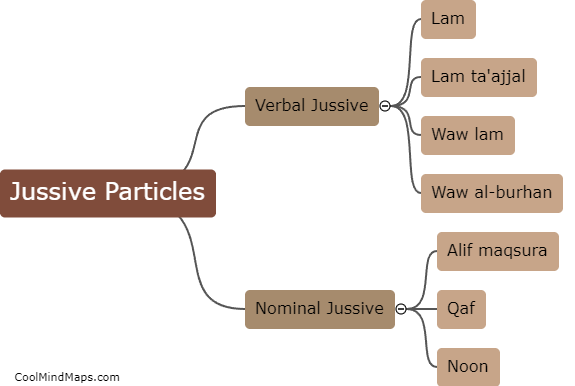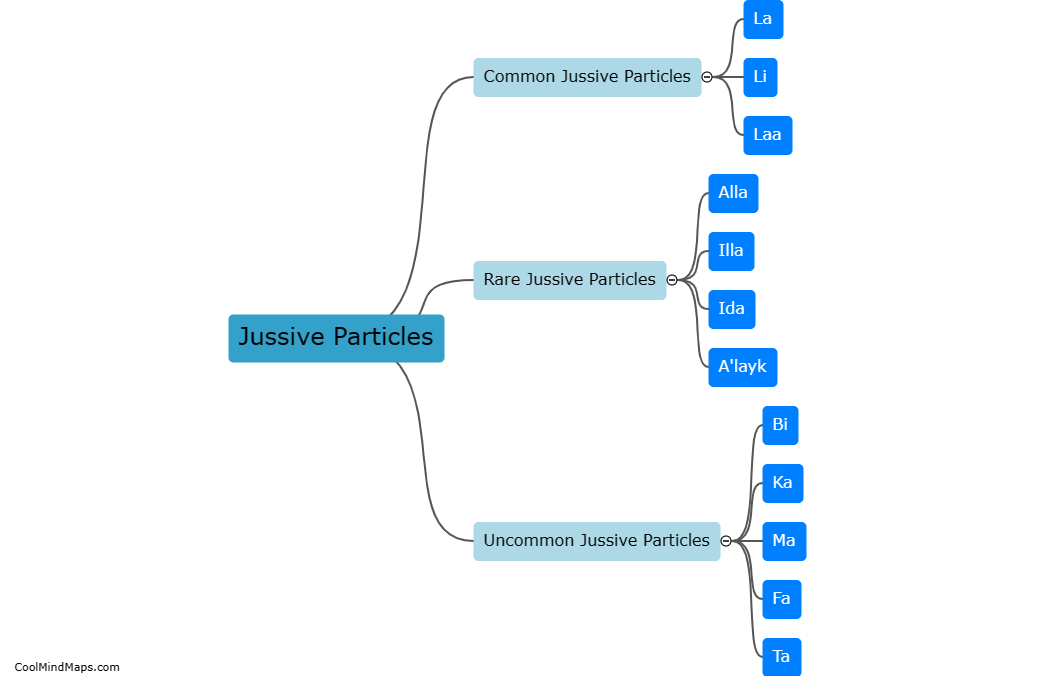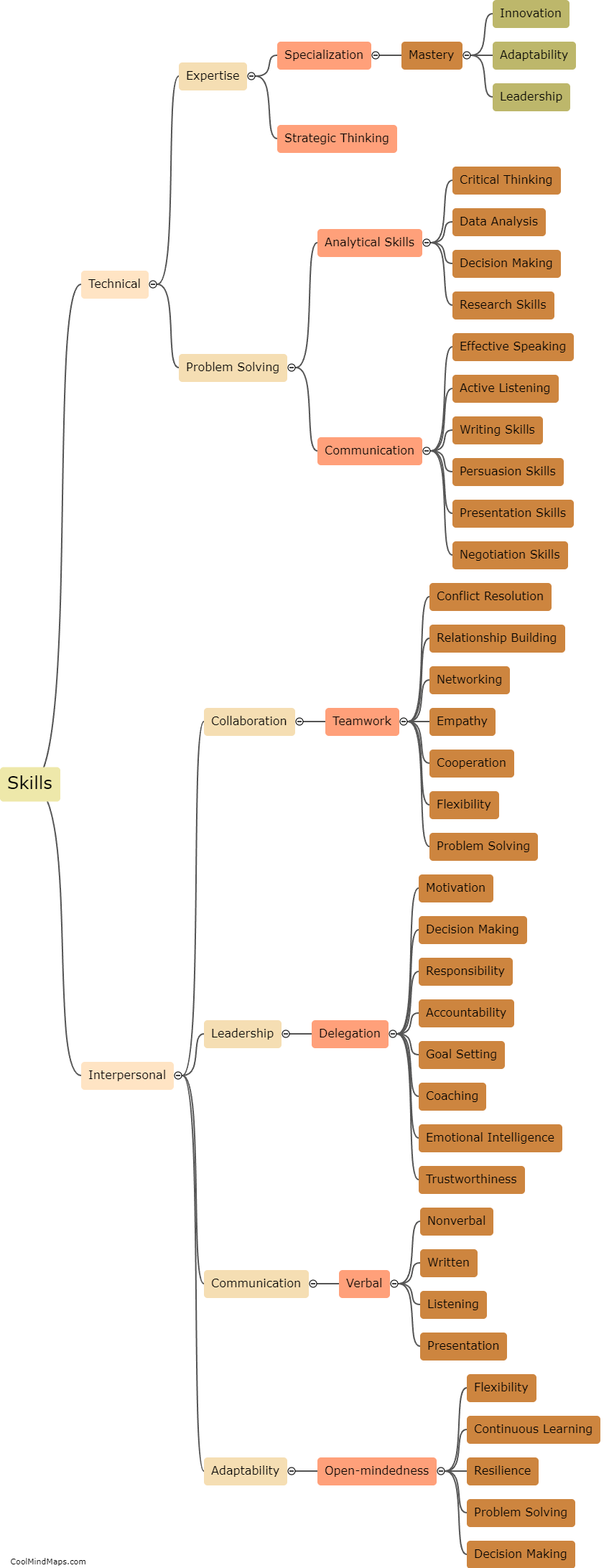How do jussive particles change the meaning of a verb?
Jussive particles play a crucial role in modifying the meaning of a verb in various languages. These particles, commonly found in Semitic languages such as Arabic and Hebrew, are used to indicate commands, wishes, requests, or desires. When attached to a verb, they transform the verb into a jussive mood, altering its original meaning. For example, in Arabic, adding the jussive particle "لَ" (la) before a verb changes it from indicative to imperative, implying a command. Similarly, in Hebrew, the particle "תֵּ" (te) can be used to shift a verb to the jussive mood, indicating a request or desire. Thus, jussive particles have the power to significantly modify the semantic nuances and implications of verbs, allowing speakers to convey their intentions or influence the actions of others efficiently.

This mind map was published on 1 October 2023 and has been viewed 101 times.











